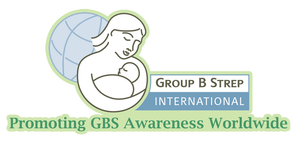Research: Randomized Controlled Trial of Oral Probiotics for Primary Prevention of Antepartum GBS10/6/2018
Presented by Lisa Hanson, PhD, RN, CNM, APNP, FACNM Measurable Learning Objectives: At the conclusion of this presentation, participants should be able to… 1. Describe the mechanism of action of probiotics against pathogens such as GBS. 2. Describe potential benefits of probiotics as a GBS prevention strategy. ABOUT THE PRESENTER:  Lisa Hanson, PhD, RN, CNM, APNP, FACNM Dr. Lisa Hanson is Professor and Director of the Marquette University College of Nursing, Midwifery Program. She practiced clinically as a nurse-midwife for over 30 years at the hospital setting where she conducts research. Since 2009, her program of research has been the studying of probiotics. She was recently funded by the National Institute of Health, National Institute of Child Health and Disease Prevention for a clinical trial to test the effectiveness of an probiotic to reduce prenatal GBS colonization.
Marti Perhach
10/18/2018 09:05:17 am
Thank you, Dr. Hanson, for all of your work regarding testing the effectiveness of probiotics to reduce GBS colonization. Parents are eager for strategies that can help protect their babies during pregnancy.
Jettele Lara
10/18/2018 10:27:17 am
1. Since it is only Floragen that was used as the "drug used". Is there a comparable probiotic that can be identified with it? How much lactobacillus, etc in it?
Lisa Hanson
10/18/2018 11:21:47 am
1. In our published pilot work we studied Florajen3. The goal of the double blind Randomized Controlled Trial (RCT) that is underway is to determine the effectiveness of Florajen3 at reducing GBS prenatal colonization. Although we have done lab pilot work that shows this probiotic kills GBS in a Petri dish, we have not yet established effectiveness in pregnant women. Florajen3 contains freeze-dried strains totaling 1.5 x 1010 live organisms, including > 7.5 x 109 Lactobacillus acidophilus, > 6.0 x 109 Bifidobacterium lactis, and > 1.5 x 109 Bifidobacterium longum.
Kristen Entze
10/18/2018 10:31:25 am
It seems like regardless of the lack of research of it having any impact at all on GBS, instructing pregnant patients to take probiotics daily just like the prenatal vitamin would be beneficial. I know there would have to be a lot more studies and research done but wouldn't it be great if doctors just encouraged probiotic use from the get go?
Lisa Hanson
10/18/2018 11:27:26 am
I would not disagree, except with your use of "doctor". This practice that I am studying came out of the midwifery community. Many midwifes such as myself, do recommend prenatal probiotics. I have published a number of articles on the benefits for pregnant and non pregnant women. For example, there are many studies that show that prenatal probiotic ingestion can reduce atopic allergies (e.g. eczema) in children by 50%! A barrier to more wide spread use is the lack of knowledge about how to chose a high quality probiotic supplement. Opinions abound and are sometimes influenced by people who have a vested interest in a particular company. Another barrier is cost. Probiotics are an over the counter nonprescription supplement that some women cannot afford. Thank you
Kristen
10/19/2018 06:58:34 am
Sorry I should have been all inclusive what I meant to say was care providers. I have never had an experience with a midwife so that’s probably why my go to is doctors. I wonder if there is a way to make probiotic use more affordable like through health insurance. It only makes sense that it could potentially reduce their costs if the use of probiotics is shown to create healthier babies and mothers.
Staci Shockley
10/24/2018 07:39:31 pm
I located a prenatal with a probiotic in it by rainbow light called prenatal one, in case you’re interested. As someone who has been told I am heavily colonized with GBS I am very interested in your study. I have done a lot of research too and have found that vitamin D and C help with keeping the infection low for GBS and I personally would be taking probiotics, antibiotics from beginning of pregnancy until the end of pregnancy and the baby would take it the first 3 months per the high risk doctors, with my infectious disease doctor, and pet research my fertility doctor did, and I would be using keifer and kombucha as well as have a diet rich in leafy greens to help flush the digestive track. I lost 2 babies (separate pregnancies) in utero due to GBS in the second trimesters. Comments are closed.
|
Categories
All
|
Join the Campaign against GBS Disease in babies! |
CONNECT TO GBSI |

 RSS Feed
RSS Feed